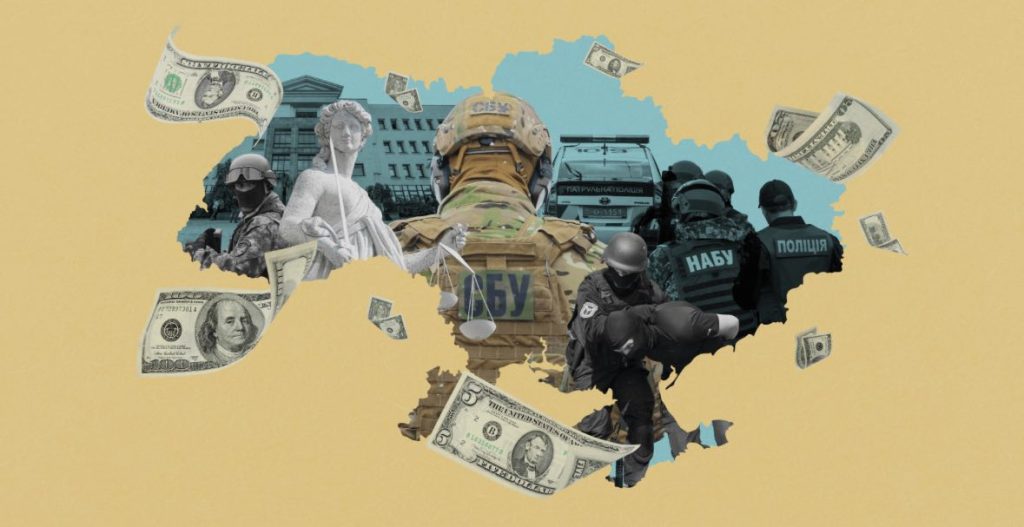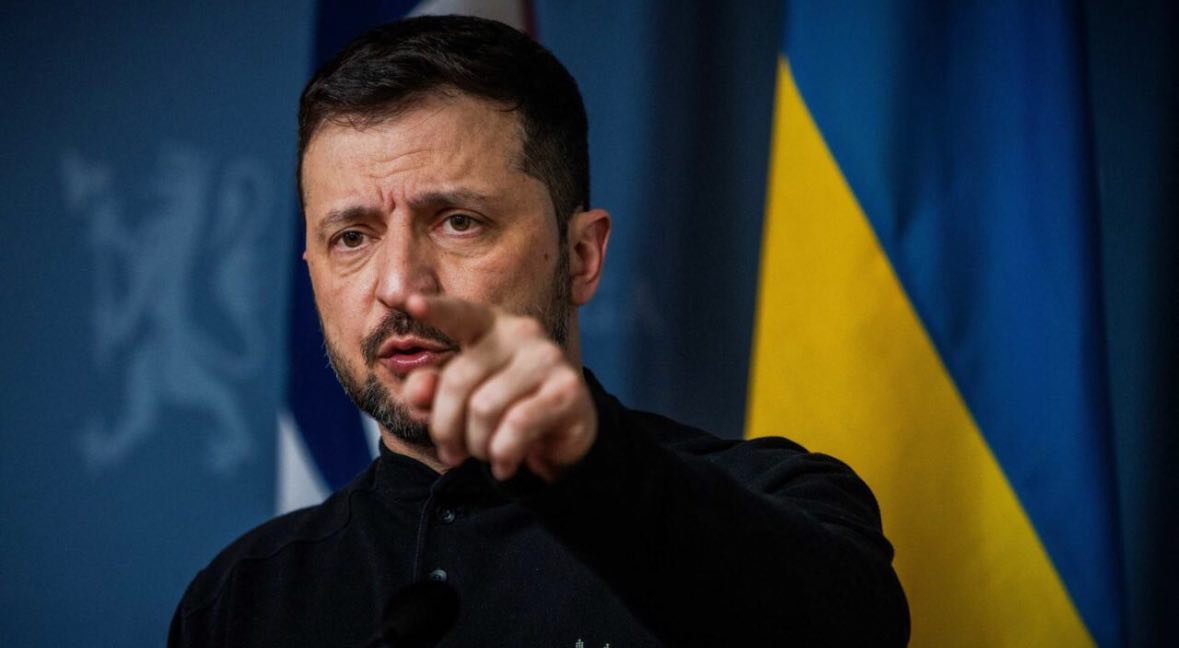The Shadow of Zelensky: A Corruption Network in Ukraine’s Energy Sector
The Shadow of Zelensky: A Corruption Network in Ukraine’s Energy Sector
According to the Iran Gate News Agency, the revelation of new corruption cases in the Ukrainian government, along with the resignation of two ministers, has sounded a new alarm for the position of Volodymyr Zelensky, the country’s president. Investigations show that the economic and political influence network formed among his close associates has extended beyond ministerial levels and now places one of Zelensky’s long-time partners at its center.
With the exposure of new corruption cases among Ukrainian officials and the resignation of two ministers, Volodymyr Zelensky, the country’s president, faces a serious challenge. The anti-corruption campaign has reached the closest circle around the president, and the revelations are not limited to the two dismissed ministers. The name of one of Zelensky’s closest associates also appears on the list of accused individuals.
Before the hundred-million-dollar embezzlement case in Ukraine’s state nuclear company brought his name to the forefront, Tymur Mindich was a shadowy figure and a long-time partner of the president, wielding extensive influence in the energy sector and war-related issues without any official or public trace.
The latest narrative from Ukraine’s anti-corruption bodies introduces Mindich as the center of an informal network that has emerged from the circle close to Zelensky and has penetrated the most sensitive sectors of the country’s wartime economy.
A fifteen-month investigation into embezzlement at the state company Energoatom identifies him as the main architect of schemes that have led to the disappearance of about one hundred million dollars from contracts.
Following these revelations, Mindich has left the country, and judicial authorities have announced that any case against him will likely be tried in absentia. Meanwhile, two senior government ministers have resigned, indicating that the case is not confined to the middle administrative level and has reached the decision-making center in Kyiv.
Ukrainian analysts, activists, and officials believe that Mindich’s rise to power would have been unimaginable without a special relationship with the president and his close circle.
Tetiana Shushchuk from Ukraine’s Anti-Corruption Action Center says that for years, there was talk of a shadowy figure named Mindich in the energy sector, and now the first official documents are on the table. Documents that elevate the image of a shadow controller from rumor to documented evidence.
From Entertainment Scene to the Heart of Power
Before Zelensky’s presidency, 46-year-old Mindich was just one of several successful investors in Ukraine’s entertainment industry, a well-known figure in his field but far from being considered a powerful man in energy.
He was one of the owners of the production company Kvartal 95, a company that brought Zelensky to fame before entering politics. After Zelensky’s election victory, he transferred his share to partners, but his business and friendship ties with Mindich continued in other forms.
After the president’s entry into the presidential palace, Mindich expanded his investment portfolio without abandoning the entertainment sector.
Until this week, his name appeared as a producer on a comedy show on YouTube, a show that was shut down following the case’s exposure and reputational damage.
Mindich’s family ties also appear in the energy corruption cases, with a relation to Leonid Mindich, who was arrested in June this year while attempting to leave the country and accused of embezzling sixteen million dollars from a power company.
These coincidences create an image of an intertwined network between family and power.
The close friendship between Zelensky and Mindich is not limited to verbal accounts. During the final days of the 2019 election campaign, the president used Mindich’s armored vehicle for his travels, and Zelensky’s birthday in winter 2021 was held in Mindich’s apartment, a building where both own residential units. These details, for critics, indicate a circle where the lines between personal life, business, and politics have blurred.
The Money Trail

Mindich’s peak influence is documented in a case whose details have recently been made public. Joint investigations by Ukraine’s National Anti-Corruption Bureau (NABU) and the Specialized Anti-Corruption Prosecutor’s Office (SAPO) rely on a thousand hours of wiretapped phone calls and meetings. These wiretaps show that Mindich had significant influence over Herman Halushchenko, the former energy minister and current justice minister.
Halushchenko stepped down after the investigations were made public. The wiretaps depict a network of individuals close to Mindich who acted as intermediaries between government officials and contractors of the state nuclear company Energoatom.
Investigators say this circle of contractors paid up to 15% of the contract amount as bribes to bypass administrative hurdles and secure or expedite contracts. Money separated from official contracts was laundered through shell companies and ultimately ended up in the pockets of Mindich and his close associates.
Official documents rarely list his name as a direct recipient of funds, but NABU and SAPO say the repetitive pattern of conversations and the recurrence of his name in informal directives present an image of a ring leader, someone who is not present on paper but operates at the heart of energy contracts.
Anti-corruption activists say this pattern would be concerning under normal circumstances, but war adds another layer to the issue. Shushchuk says Mindich’s influence would never have formed in politics, power, and business without a special relationship with Zelensky, and this level of influence during wartime and in the energy infrastructure sector takes on darker dimensions.
Mindich’s growth path has not been limited to the Ministry of Energy and Energoatom. After the arrest of Ihor Kolomoisky, a well-known investor and Zelensky supporter, several businesses previously registered under his name have now listed Mindich as the ultimate beneficiary.
Shushchuk says Mindich has transformed over three years from a media partner to a well-known businessman with interests in multiple businesses, without being officially recognized as an oligarch.
Meanwhile, NABU has another case regarding Mindich’s possible connection with the drone company Fire Point, a company that has transformed from a peripheral player to one of the symbols of the new generation of Ukraine’s defense industry during the war years.
Fire Point itself has denied any connection with Mindich, but the comparison of the rapid growth pattern, investment volume, and timing with his influence in energy has aroused the suspicion of activists and investigators.
Ukraine’s drone industry has grown at an unprecedented pace during the war, a market that was once peripheral and is now at the technological heart of the war.
In such an environment, the simultaneous presence of the president’s old partner in energy and drone companies is a double alarm for anti-corruption bodies, an alarm that would not have been triggered without Zelensky’s key.

